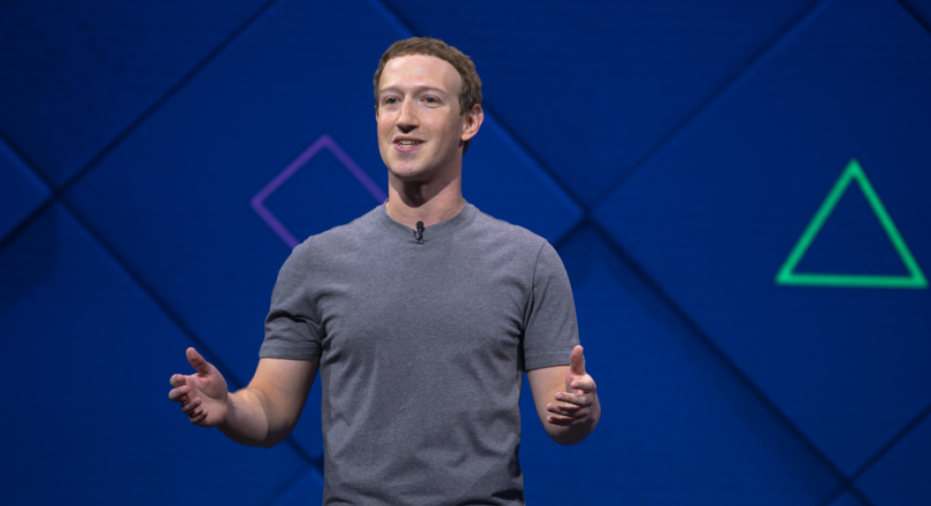Here's What Mark Zuckerberg Said During Last Night's Media Blitz

Mark Zuckerberg made the rounds last night to discuss the Cambridge Analytica data leak, appearing on CNN and giving interviews to the New York Times, Wired, and Recode.
Prior to the media blitz, Zuckerberg had been silent for several days. In a Tuesday Facebook post, Zuckerberg said he'd been "working to understand exactly what happened" since the subject made news on Friday, and explained what the company would be doing about it.
That includes an audit of developers who accessed large troves of Facebook user data before 2014, when the social network's rules about such things were much looser. Going forward, Facebook will also restrict how much data developers can access.
Here's what else he had to say about the uproar and Facebook's future.
CNN
In an interview on CNN, Zuckerberg started with an apology: "So, this was a major breach of trust, and I'm really sorry that this happened," he said. "Our responsibility now is to make sure this doesn't happen again."
Zuckerberg argued that he never expected that Facebook would one day be required to "help protect the integrity of elections against interference by other governments." Asked whether Facebook has done enough to protect future elections, Zuckerberg said "we will see."
He admitted that Facebook was "not as on top of a number of issues as we should've" been, from election meddling or fake news. He pointed to the French election, where Facebook deployed AI tools that "did a much better job of identifying Russian bots and basically Russian potential inteference, and weeding that out of the platform ahead of the election."
Facebook also deployed new AI tools ahead of the Senate special election in Alabama to detect fake accounts trying to spread false news; there, the company uncovered accounts from Macedonia.
"This isn't rocket science," Zuckerberg argued. There's work to be done, "but we can get in front of this, and we have a responsibilty to do this, not only for the 2018 midterms in the US ... but there's a big election in India this year, there's a big election in Brazil ... and you can bet that we are really committed to doing everything we need to to make sure the integrity of those elections on Facebook is secured."
The New York Times
When asked by the Times if he was surprised by the backlash over this issue, Zuckerberg acknowledged that Facebook, WhatsApp, and Instagram are a major part of people's lives so any breach of trust is "rightfully a big issue and deserves to be a big uproar."
Why did he wait five days? He wanted to make sure the data was "fully accurate."
Zuckerberg expects that Facebook's audit of pre-2014 apps will cover "thousands" of them. The company also plans to investigate whether user data ended up on the dark web.
As for the #DeleteFacebook campaign, which includes WhatsApp co-founder Brian Acton, Zuckerberg said he hasn't seen any "meaningful number of people" ditch Facebook, but "it's not good [and] we have a responsibility to rectify," he said.
Will that include a totally different business model? For now, Facebook is sticking to a free, ad-supported platform because not everyone can afford to pay for it. For more, check out today's episode of The Daily, a podcast from the Times that features an interview with Kevin Roose, one of the reporters who talked to Zuckerberg.
Wired
Overall, Zuckerberg tells Nicholas Thompson, Facebook will be implementing "probably 15 changes...to further restrict data. I didn't list them all, because a lot of them are kind of nuanced and hard to explain—so I kind of tried to paint in broad strokes what the issues are, which were first, going forward, making sure developers can't get access to this kind of data."
Does Facebook think its data got into the hands of Russia's Internet Research Agency? "I can't really say that. I hope that we will know that more certainly after we do an audit," Zuckerberg said.
The data collected from Facebook, meanwhile, "wasn't watermarked in any way," Zuckerberg said, so Facebook was not alerted when it was passed to Cambridge.
As for whether he'll go before Congress, Zuckerberg was coy. "If...I am the most informed person at Facebook in the best position to testify, I will happily do that," but he suggested that someone from Facebook's legal team would be better suited to appear.
He also voiced support for the Honest Ads Act, which is designed to prevent foreign governments from influencing future US elections via social media.
Recode
Recode's Kara Swisher pushed Zuckerberg on whether anyone at the company thought opening up the Facebook platform would cause problems down the line. "We remain idealistic," he responded. Ten years ago, Facebook was much smaller and not being targeted by nation-states.
As for drawing the line on hate speech and offensive content, "I feel fundamentally uncomfortable sitting here in California at an office, making content policy decisions for people around the world," he said.
"I just wish that there were a way ... a process where we could more accurately reflect the values of the community in different places," but Facebook hasn't quite figured that one out yet.
Ultimately, the audit will "cost many millions of dollars and take a number of months," Zuckerberg told Swisher, so stay tuned.
This article originally appeared on PCMag.com.



















